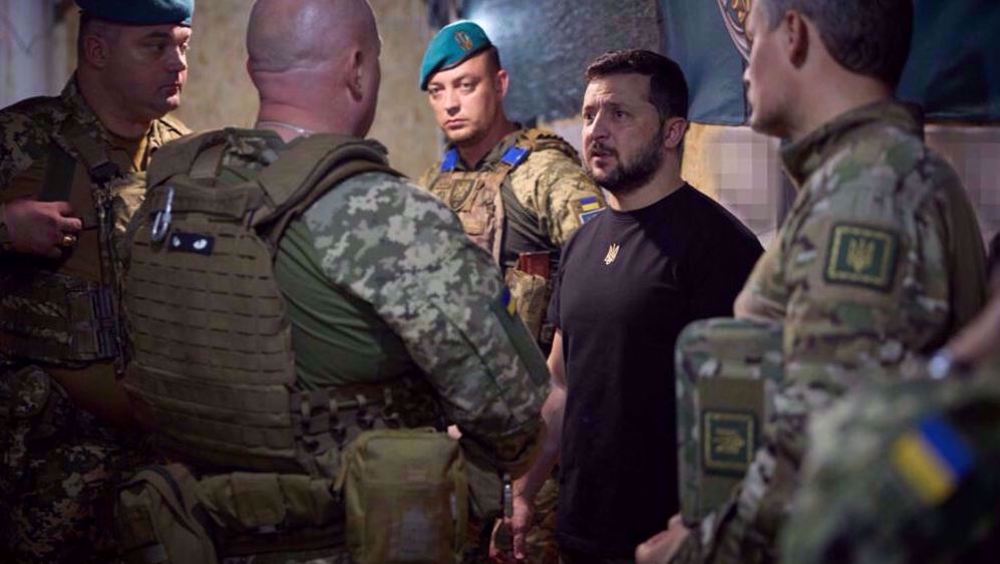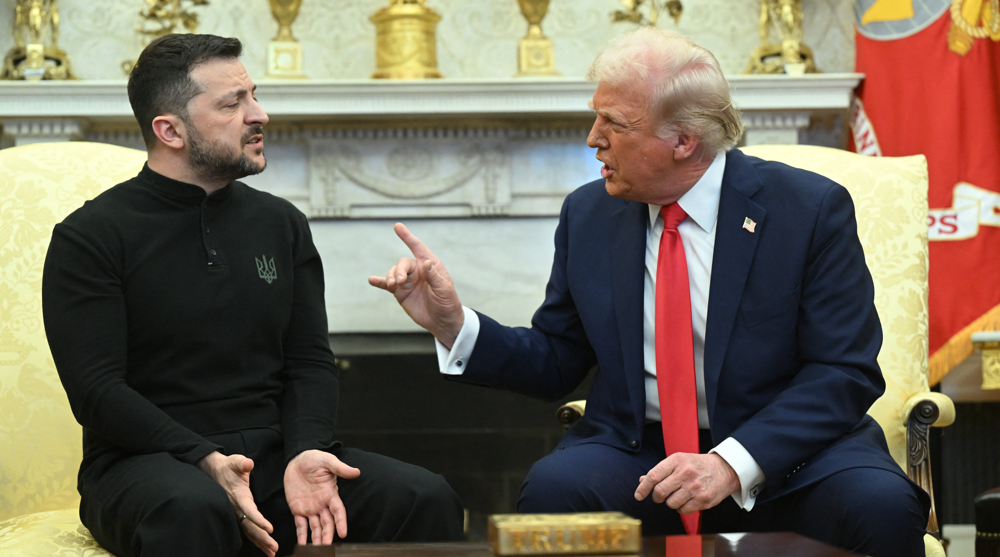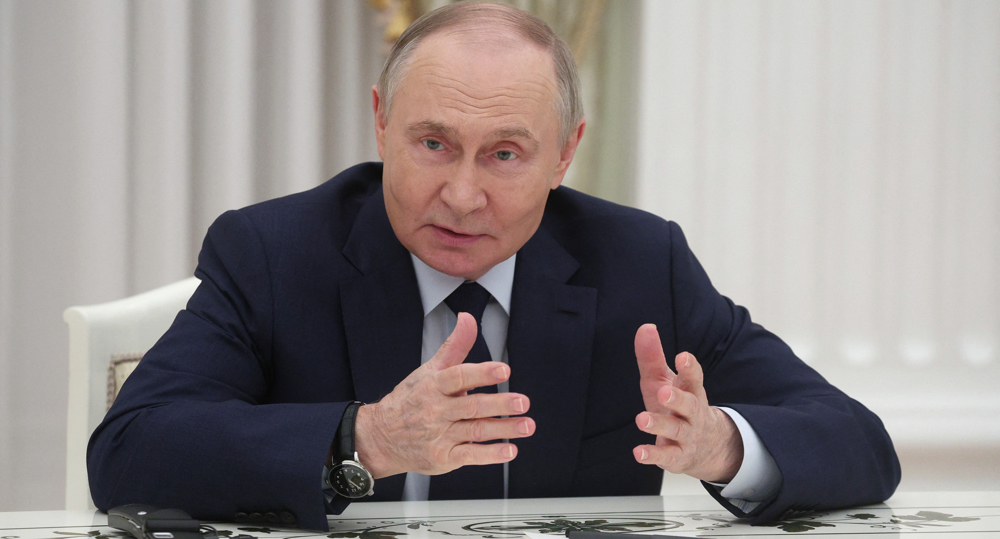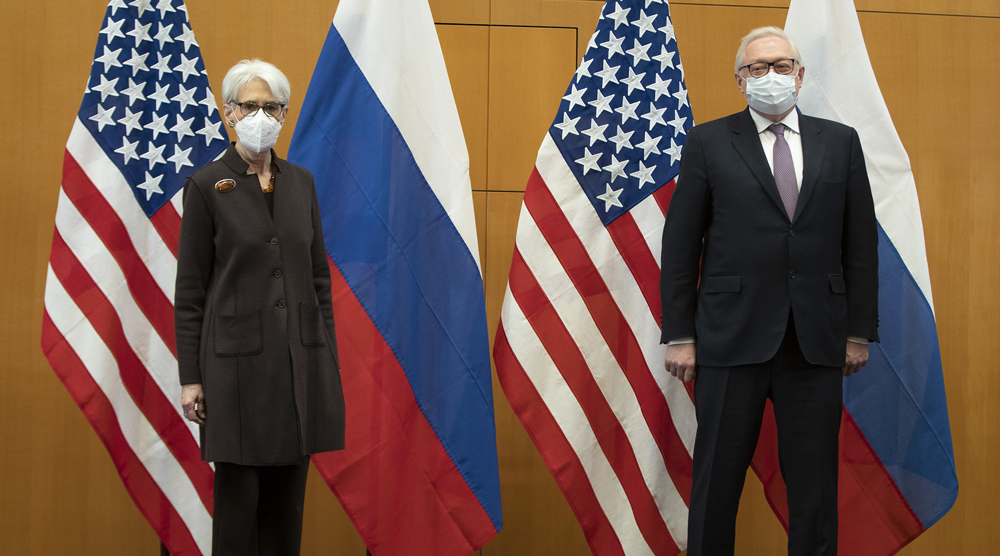Russian deputy FM: No progress made on Ukraine’s NATO membership in US talks
Russia’s Deputy Foreign Minister Sergei Ryabkov says there has been no substantial progress with regard to the ban on Ukraine’s membership in NATO during talks with his American counterpart.
Speaking to reporters following his meeting with US Deputy Secretary of State Wendy Sherman on Monday, Ryabkov said there had been no progress at security talks between Moscow and Washington on the question of ruling out future Ukrainian membership of NATO.
"This is one of the areas we have the greatest difference with the US. The US suggests that there is no way that Russia or whoever else may ever say on these types of issues but we underscore that for us it's absolutely mandatory to make sure that Ukraine never, never ever becomes a member of NATO," the Russian diplomat told a news conference in the Swiss city of Geneva.
Ryabkov stressed that Russia wants an “ironclad” guarantee that Ukraine will never be allowed to join the Western military alliance because such a move would pose a serious threat to Russian national security.
"We need ironclad, waterproof, bullet-proof, legally binding guarantees. Not assurances, not safeguard guarantees with all the words "shall", "must," everything that should be put in this boat - never ever becoming a member of NATO."
Ryabkov made the remarks after more than seven hours of negotiations with Sherman and other US officials in Geneva, which focused on a wide-ranging new security arrangement that Moscow is seeking with the West over NATO’s eastward expansion and Kiev’s membership in the US-led military alliance.
The high-stake talks came amid fears of a Russian invasion of its former Soviet neighbor, with Ryabkov saying at the news conference that he had assured Sherman that those fears were unfounded.
“We explained to our colleagues that we have no plans, no intentions to 'attack' Ukraine... There is no reason to fear any escalation in this regard,” he told reporters after the talks.
Ryabkov also said the United States "took Russian proposals very seriously," and that Moscow was "for the continuation of dialogue."
The Russian diplomat added that his country's response to any failure of security talks with the United States would be of a military-technical nature, though he declined to disclose what it would be.
Ryabkov added that Moscow was focused on diplomacy for now and did not want to discuss what new military deployments it might make in the event of a breakdown in negotiations.
Sherman, for her part, said the United States was ready to meet again, but that Russia had not offered assurances with regard to its withdrawal of troops amassed near Ukraine. The US deputy secretary of state censured some of Russia's demands as "simply non-starters," including a ban on NATO's further eastward expansion.
The two diplomats had already met informally on Sunday evening, with Ryabkov telling Russian news agencies that their first meeting had been “difficult.”
Ahead of the talks on Monday, NATO Secretary-General Jens Stoltenberg warned Russia of "severe costs" if it launched an attack on Ukraine. Stoltenberg also said he did not expect the talks to "solve all the issues," but expressed hope that the negotiations could pave the way for a diplomatic solution.
Western governments accuse Russia of planning “an invasion” of Ukraine amid military buildup near the Ukrainian border. Moscow rejects the allegation and insists that deployments are defensive in nature.
Moscow has repeatedly reiterated that expansion of the NATO military infrastructure in Ukraine is a red line for it and that any future expansion must exclude Ukraine and other former Soviet countries.
Last month, the Russian government made demands on NATO and Ukraine about the future of their relationship, calling on the Western military alliance to deny Ukraine membership to NATO and to roll back its military deployments. Moscow also proposed that the US not establish any military bases in former Soviet states that are not part of NATO, nor develop a bilateral military alliance with them. NATO, however, strongly rejected the proposals, stressing that the alliance will not abandon its basic principle of freedom for countries to join military blocs.
Russian President Vladimir Putin has previously warned that Moscow will act if NATO crosses its red lines in Ukraine.

Ukraine peace talks downgraded in London as Kiev rebuffs Trump’s proposal

US plan requires Ukraine to give 20% of territory to Russia: Report

Russia's President Putin ratifies bill for strategic partnership with Iran
VIDEO | Gaza’s dire conditions hit unprecedented levels
VIDEO | Press TV's news headlines
VIDEO | Pakistan’s business and cultural front unites for Gaza: Nationwide shutdown, boycott announced
US jets carry out more aggression against Yemen
Syrian militants enslaving Alawite women in Idlib governorate: Report
VIDEO | US pro-Palestinian campus protest
VIDEO | Palestinian civil defense rejects Israel’s probe and exposes the crime
India downgrades ties with Pakistan after deadly Kashmir attack







 This makes it easy to access the Press TV website
This makes it easy to access the Press TV website